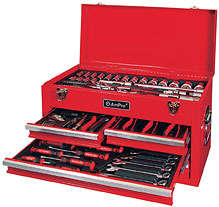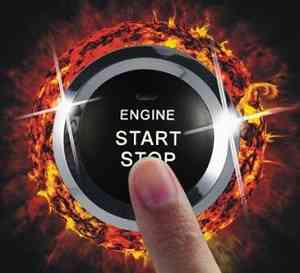4x4 Off Roading ›› Mechanical ›› Causes of High Fuel Consumption in Diesel Engines
Reason for Poor Fuel Economy Diesel Engine
The high costs of motoring in the United Kingdom always seem to get more expensive each year that passes. This guide explains how to improve diesel miles per gallon.
Fuel price is not something that regular drivers can make any cheaper at the pump. The price of diesel continues to rise in most cases.
So, the basic running costs apply no matter whether you drive a diesel or a petrol motor.
Here's the thing:
There are simple steps you can take to improve diesel fuel economy and miles per gallon (MPG). Many of our followers want to know how to maximize diesel fuel economy while driving.
Check out these top tips to help improve fuel efficiency and get more miles per gallon from your diesel car.
9 Causes of High Fuel Consumption in Diesel Engines
1. Driving with Excess Weight
 The first tip for improving diesel fuel economy is removing excess weight. Remove any unnecessary bulky and heavy items from the vehicle.
The first tip for improving diesel fuel economy is removing excess weight. Remove any unnecessary bulky and heavy items from the vehicle.
There is a whole list of common non-essential items that people leave in the boot.
Remember that snow shovel stored in the boot last winter? Do you need to carry the child buggy if the kids are staying at home? How about that bulky tool box and your golf clubs?
All these excess items make the engine work harder and that burns more fuel.
Fuel Efficiency Tip: Remove all the bits and pieces that are unnecessary for the journey. Keep essential items that you might need in the event of a vehicle breakdown.
2. Having Too Much External Drag
All vehicles need to work much harder when they have external drag attached to them. Cutting through the air becomes more difficult with extra wind resistant items. That means your car will be burning more fuel.
Items which cause external drag include roof boxes, surf boards, and bicycle racks.
Driving with vehicle windows open reduces fuel efficiency. It is best to keep all windows shut and use the vehicle air conditioning instead.
Fuel Efficiency Tip: Remove all external carrying kits like roof boxes and bike racks if you are not using them.
3. Poor Vehicle Maintenance
Not keeping your car serviced and well maintained is a common cause of high fuel consumption. A tuned engine is an efficient engine and that will help save money on fuel consumption.
- Change the oil and tune the timing to perfection at regular intervals. Getting regular tune-ups mean your car will use less diesel fuel in most cases.
- Cleaning or replacing the air filter regularly will help optimize engine performance.
- Ensure spark plugs are in good shape (where applicable) and renewed when necessary.
Statistics suggest a fine tuned engine can increase diesel fuel efficiency up to 3-5%. It may also help avoid or reduce the likelihood of common engine problems in the future.
Another common cause of high fuel consumption is driving with tyre pressures too low. Deflated tyre pressure adds strain to the vehicle engine and increases resistance.
Pumping your tyres to the correct pressure will help the engine burn less fuel. You should also notice a slow down on your fuel gauge.
Fuel Saving Tips: Keep your engine tuned and your car well maintained and serviced. Check tyre pressures monthly and keep them at the recommended air pressure for your vehicle. Consider buying fuel saver tyres next time you replace any that get worn or damaged.
4. Vehicle Air Conditioning and Heating
When you use air conditioning (or heating) it puts an extra strain on the engine. That results in more fuel getting burnt. In fact, the car uses a lot more fuel while using the air-con at low speeds.
But, in general it is better to use the air conditioner system than rolling down the car windows. Opening the side windows increases drag and slows down the vehicle.
Fuel Saver Tip: Limit the use of heated windscreens, demisters and electrical appliances.
5. Changing Gear and Accelerating
It is best to change to a higher gear early and accelerate gently. The same advice goes for braking and avoid jerky pedal use. Increase vehicle speed gradually and use the accelerator pedal efficiently.
When you shift gears at low revolutions per minute it helps to improve your fuel mileage. As a rule, you should change up a gear before 2000 rpm with a diesel engine and before 2500 rpm in a petrol version. But, engines that struggle at low revs will increase fuel consumption for the vehicle.
 6. Poor Engine Stop/Start Use
6. Poor Engine Stop/Start Use
Engine stop-start technology gets fitted to most modern cars. But, you must work it properly to get the best miles per gallon for your car.
Idling with a heavy foot on the clutch means the engine burns fuel faster. Lift up your foot and you start to save fuel and money.
Fuel Saving Tip: When the engine idles your car produces 0 mpg. Idling longer than 10 seconds will use more fuel than re-starting the engine.
7. Disobeying the Speed Limits
Expert research shows that driving at 80 miles per hour uses up to 25% more fuel than driving at 70 mph. Keep your speed stable, consistent, and use cruise control when appropriate.
Fuel Efficiency Tip: Always obey the UK Highway Code speed limits for your type of vehicle.
8. Failing to Plan the Journey
Planning a journey can save fuel - that means saving money too! Try to avoid traffic black spots and reduce your driving at busy times where possible. Using sat-nav (or a map) will help you avoid getting lost. That means you save fuel because you don't drive further than is necessary.
Tip to Improve Diesel MPG: Drive less! Try to combine your trips so you save money on diesel fuel.
9. Not Reading the Road Properly
The Earth's gravity can help you reduce your fuel bills. Reading the road as if you were riding a bike can also help you save fuel.
Build up natural momentum when you drive downhill. That will help you get uphill afterwards. You will need less acceleration to make the incline.
Fuel Efficiency Tip: Take advantage of gravity and look far ahead while driving. Keep moving where possible, anticipate obstacles, and avoid stopping too often.
You might also enjoy reading about...
Editor's Bio: We are self-confessed car fanatics and we enjoy writing blog articles about the automotive industry - especially here in the United Kingdom.